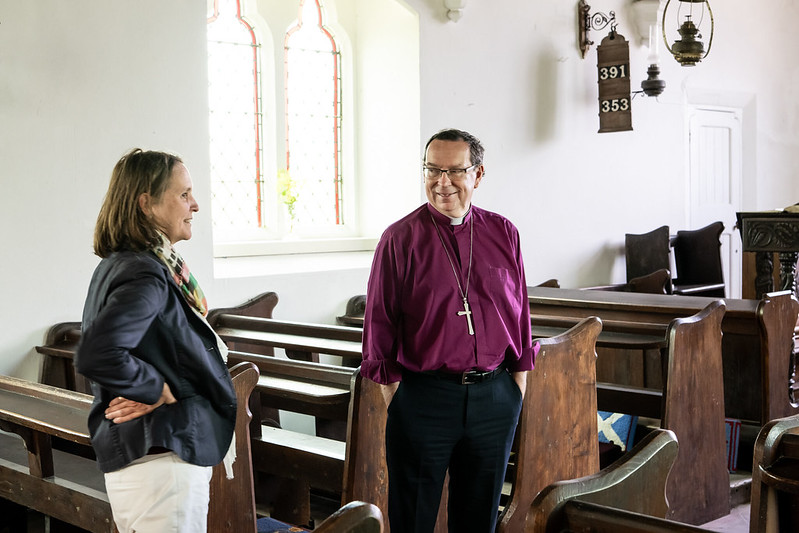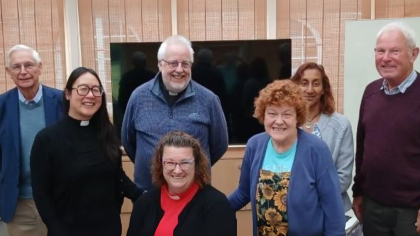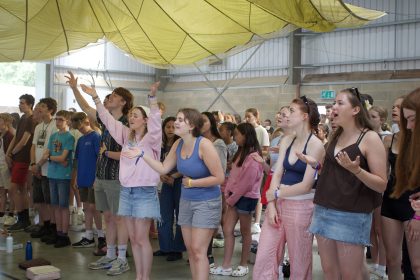As Bishop Philip prepares to join the diocese as the next Bishop of Winchester, we spoke to him about his background and experience, and his hopes and prayers for his future ministry with us…
How are you feeling about your new role?
Excited, in a word! But also conscious of the great responsibility that goes with a role such as this. However, whilst the weight of history should sit heavy on my shoulders, it’s also such a rich heritage on which to draw as we look to the future together with our God.
We understand you lived in Southampton and went to University there – what are you looking forward to about coming back to Hampshire?
My time at Southampton was so formational for me. It shaped me spiritually, emotionally, and intellectually in incalculable ways. So I feel very much in Hampshire’s debt, and look forward eagerly to giving back to a place that has given me so much.
Can you tell us a bit more about your story – where you grew up, what were your main influences, what did your calling to both ordained and episcopal ministry look like?
I was born in NE Hampshire, but had a fairly itinerant childhood, moving up and down the country, due to my father’s work. That’s given me a real appreciation of the variety and the particularity of ‘place’. I think it also moulded us into a close, loving family unit and I’ll be forever grateful to my parents for the unconditional love they showed me.
My call to ordained ministry came through friends suggesting I should consider it! I went into it with some uncertainty, but I do remember the moment, after ordination when I realised that it was exactly what I should be doing with my life, and I’m very grateful to God for the confidence that has given me.
I’ve always felt I wanted to make the biggest difference for the Kingdom of God that I could, and in an episcopal Church that often comes through being a bishop. Central to my own sense of episcopal vocation is that I am called to be an agent of hope – both for the Church and for wider society. Please pray for me that I will exercise such a ministry in Winchester.
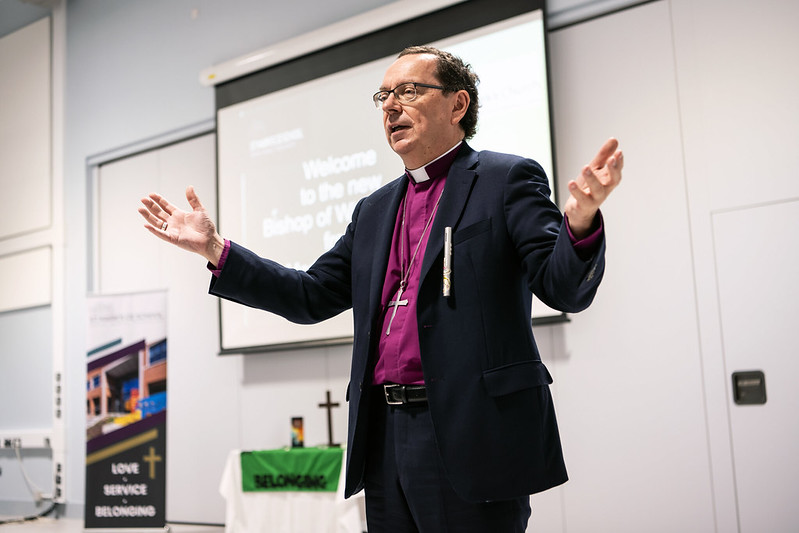
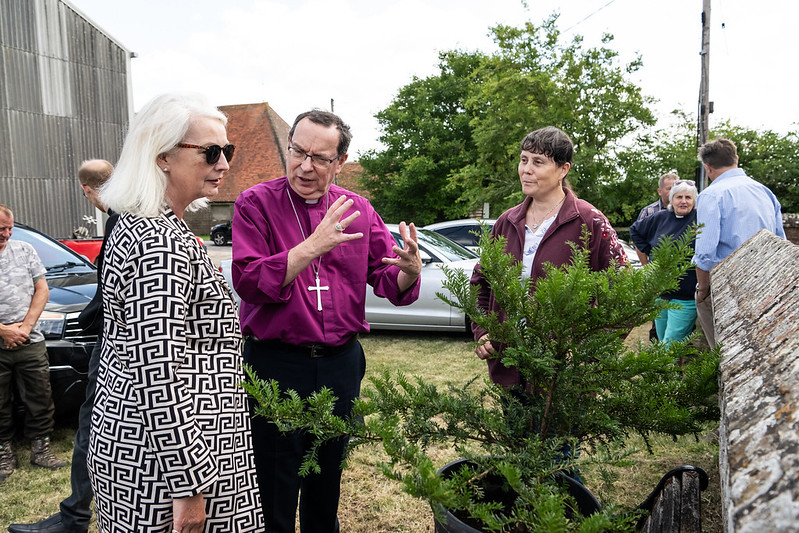
The Diocese of Winchester is large! Do you have plans to visit the different parishes or deaneries so people can meet you?
Yes! The service of ordination for bishops calls on us ‘to love and pray for those committed to their charge, knowing their people and being known by them’. I can’t do that without getting out and about and meeting people. So doing so will be a very high priority for me. It’s certainly one of the things that Ruth and I have enjoyed most in our time in Truro.
Can you say any more about your vision and other plans for leading our diocese?
Discerning vision is something that we need to do together and will take time. But I can say that I am passionate about our calling as a Church to be the body of Christ, so that when people encounter his Church, they encounter the loving presence of Jesus himself, made real in word and deed. Above all else I want to lead us in being such a Church.
We hear you worked for the Church Pastoral Aid Society with its focus on resourcing local churches – are there things you learned from your work with CPAS that you might bring to your work here in Hampshire?
A particular focus and passion from that time was a growing conviction that we really are called to be a church of all ages – not segregated into different age groups, but loving, worshipping, celebrating and serving together, as a vibrant expression of the Body of Christ. I’d love to see that become more of a reality in our churches.
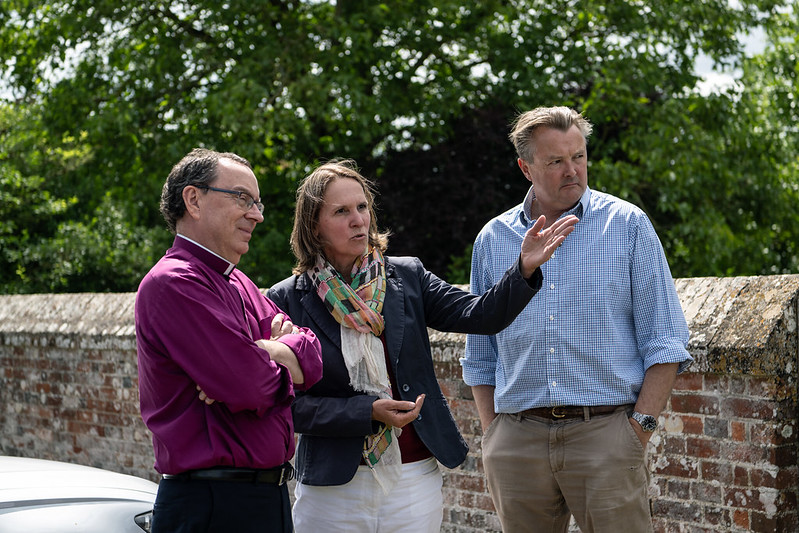
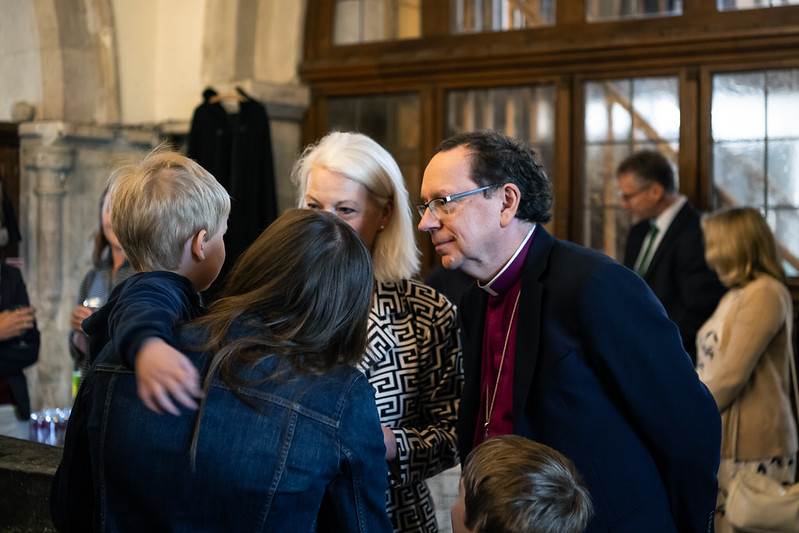
We know you worked in a multi-cultural church in Paris and for the Church Mission Society too. That must have helped when you were asked to review our Government’s help for persecuted Christians worldwide. Tell us about your passion for this area. Are there issues from that review that you see are relevant to our churches too?
Yes, it did help having a broader global perspective, thanks to that rich experience. The call to lead a review for the Foreign Secretary came out of the blue but I’ve been immensely encouraged by the continuing impact that work continues to have and it remains an enduring passion and commitment of mine: something I believe God has laid on me to do.
As for our churches, I think it’s vital that we see ourselves as part of a global family and pray and advocate for those who are marginalised or persecuted for their faith, whatever their faith background may be, remembering that our neighbours are not just like us and near us, but those who are distant and different from us too.
There’s been a lot of publicity about the reduced number of people attending churches and the financial pressures on the Church of England. Do you think these are the main issues facing our Diocese and the whole Church? What other challenges will you be focusing on?
Of course we can’t ignore those factors, but I don’t think they should be front and centre in our thinking either. The key, related, questions we have to ask in each and every context we find ourselves, I believe, are these: ‘What is our God calling us to be and do here, where he has placed us?’ And, ‘How can we best express the loving presence of Jesus amongst those we are called to serve and love?’ The answers to those questions might not come easily. They should involve careful and prayerful reflection and consultation. But living our life in the light of the answers can be truly liberating, and help us see the Kingdom come a little closer too.

